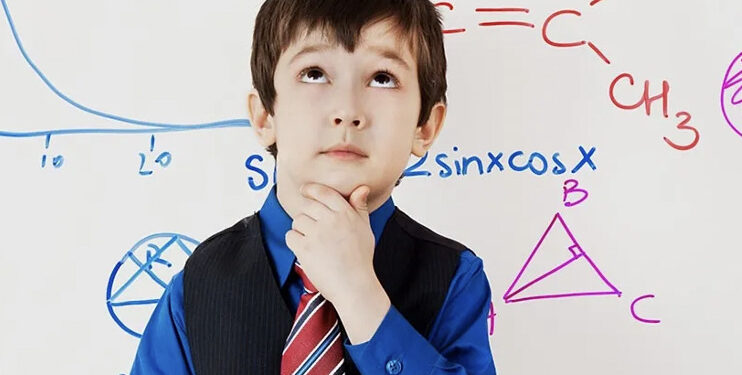Have you ever heard of child prodigies – those exceptional individuals who demonstrate exceptional abilities at a very young age? Perhaps you know of someone who started playing the piano like a virtuoso at the age of four, or a math whiz who could solve complex equations with ease before entering kindergarten.
While child prodigies are rare, they exist in various fields such as music, art, science, and sports, and have fascinated scientists and researchers for many years. According to a study published in the Journal of Intelligence by CrowdWriterUK, only about 1 in 5 million children are considered prodigies. That’s a tiny fraction of the population, but their unique abilities and potential for excellence have captured our attention.
This blog will cover,
- What a child prodigy is and providing examples of famous child prodigies
- The defining characteristics of child prodigies, including their cognitive abilities, creativity, and early onset of talent
- The neurological and psychological explanations that underlie child prodigies, including brain development, genetics, and environmental factors
- Challenges that prodigies face, including social and emotional challenges, pressure, and burnout
- Insights from the latest research in cognitive science and child development to help understand what makes child prodigies so exceptional
What Is Child Prodigy?
A child prodigy is a young person who demonstrates exceptional abilities in a particular field, such as music, art, science, or sports, at an early age. These abilities often surpass the expectations of their age group and can be ascribed to their innate talent, cognitive development, or a combination of both. Child prodigies can display an exceptional capacity for learning, creativity, and problem-solving, and they may be capable of producing work of a professional standard at a very young age.
Examples Of Famous Child Prodigies
Famous child prodigies throughout history include:
- Wolfgang Amadeus Mozart, who composed his first symphony at the age of 8.
- Pablo Picasso, who created his first painting at the age of 9.
- Blaise Pascal, who developed the first theorem in geometry at the age of 16.
- Serena and Venus Williams, who were trained in tennis from a very young age and turned professional in their teens.
These individuals are just a few examples of the remarkable talents and achievements of child prodigies throughout history.
Characteristics of Child Prodigies
Child prodigies possess a unique set of characteristics that set them apart from their peers. If you can be a mom of your style, you may notice these characteristics very early in your child. Let’s explore some of the defining traits that are commonly associated with prodigious children.
a. Cognitive Abilities
Child prodigies often exhibit advanced cognitive abilities, such as exceptional memory, heightened perception, and exceptional problem-solving skills. They can process and retain large amounts of information quickly and accurately and demonstrate a deep understanding of complex concepts that may be beyond the scope of their peers.
b. Creativity & Imagination
Prodigious children also tend to have exceptional creativity and imagination. They often come up with original and innovative ideas that challenge conventional thinking and push the boundaries of their field. Their imagination allows them to think outside the box and come up with unique solutions to problems.
c. Early Onset Of Skills & Talent
One of the defining characteristics of child prodigies is their early onset of skills and talent. They often display exceptional abilities at a very young age, sometimes even before they receive any formal training. For example, a child prodigy in music may display an exceptional ear for melody or rhythm before they learn how to play an instrument.
d. Perfectionism & Attention To Detail
Prodigious children tend to be highly focused and detail-oriented, often striving for perfection in their work. They have a strong desire to excel and may spend countless hours practicing and perfecting their craft. Their attention to detail allows them to produce work of exceptional quality, even at a very young age.
e. Social & Emotional Development
While child prodigies may excel in their field, they may also face challenges in their social and emotional development. They may struggle to relate to their peers or feel isolated due to their exceptional abilities. The pressure to succeed and the high expectations placed on them can also lead to stress and burnout.
Overall, child prodigies possess a unique set of characteristics that set them apart from their peers. Their exceptional cognitive abilities, creativity, early onset of skills, perfectionism, and attention to detail can lead to remarkable achievements, but may also come with challenges in their social and emotional development.
Neurological & Psychological Explanations For Child Prodigies
Child prodigies have been a subject of fascination and wonder for centuries. While some people may attribute their extraordinary abilities to innate talent or luck, research suggests that there are several neurological and psychological factors at play.
One possible explanation for prodigious behavior is differences in brain development and function. Studies have found that prodigious children may have more efficient neural pathways, allowing them to process information more quickly and accurately. For example, some research has suggested that the brain regions responsible for certain skills, such as music or math, may be more highly developed in prodigious children.
Another potential explanation for prodigious behavior is genetics. Research has shown that certain genetic variations may be associated with exceptional abilities in specific areas, such as music or math. However, genetics alone cannot explain the full picture of prodigious behavior, as environmental factors also play a critical role.
Environmental factors, such as upbringing and access to resources, may also contribute to prodigious behavior. For example, children who are exposed to music or art at a young age may develop a greater appreciation and aptitude for these skills. Similarly, access to high-quality training and education may help children develop their skills more quickly and effectively.
The role of practice and training cannot be understated when it comes to prodigious behavior. While genetics and brain development may provide a foundation for exceptional abilities, practice and training are critical in honing and developing these skills. Prodigies often spend countless hours practicing and refining their craft, which helps them to achieve remarkable levels of proficiency.
Challenges Faced By Child Prodigies
Social and emotional challenges are one common difficulty faced by prodigies. They may struggle to connect with peers who do not share their interests or abilities, and may feel isolated or misunderstood. Additionally, they may struggle with feelings of self-doubt and imposter syndrome, which can further complicate their social and emotional development.
Another challenge for child prodigies is the pressure and expectations placed on them by others. Parents, teachers, and coaches may have high expectations for prodigious children, which can create stress and anxiety. Additionally, the pressure to constantly perform at an exceptional level can be overwhelming and can lead to burnout and mental health issues.
Balancing their talent and education is also a significant challenge for child prodigies. They may need to juggle their prodigious abilities with the demands of school and other responsibilities, which can be difficult to manage. Additionally, they may face resistance from others who do not understand the importance of their talents or do not see the value in developing them.
Despite the challenges, many child prodigies go on to achieve remarkable success in their chosen fields. By understanding the unique challenges faced by prodigious children, we can better support and nurture their exceptional abilities while also addressing their social and emotional needs.
While Summing Up…
Child prodigies possess remarkable abilities that set them apart from their peers. Their exceptional cognitive abilities, creativity, and early onset of skills and talent are often due to a combination of neurological, genetic, and environmental factors.
However, being a prodigy also comes with its unique challenges, including social and emotional difficulties, pressure, and the need to balance talent with education.
Despite these challenges, prodigious children have the potential to achieve great success in their chosen fields. By supporting and nurturing their exceptional abilities while also addressing their unique challenges, we can help them reach their full potential.













